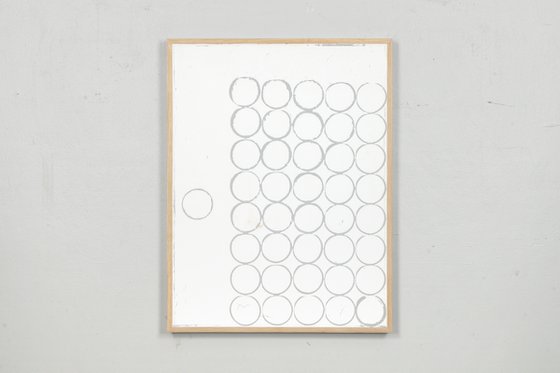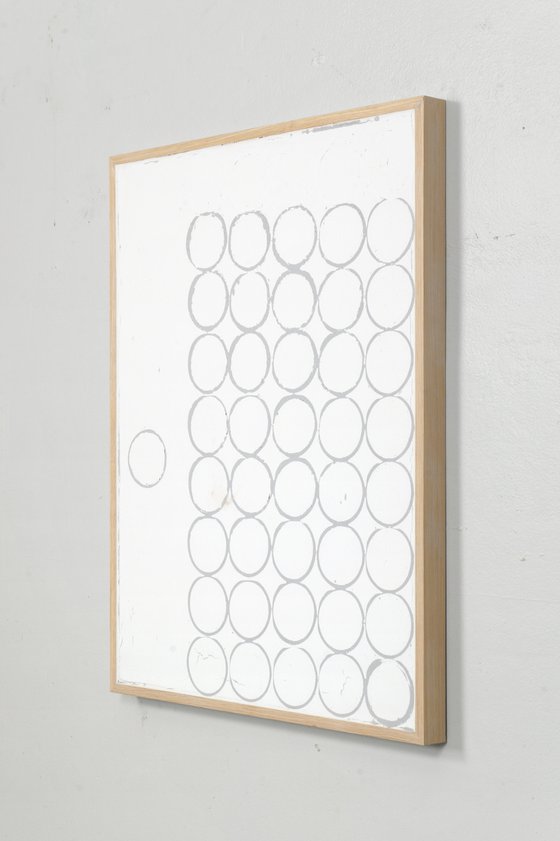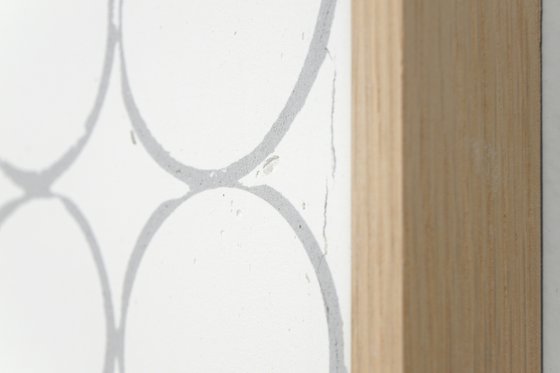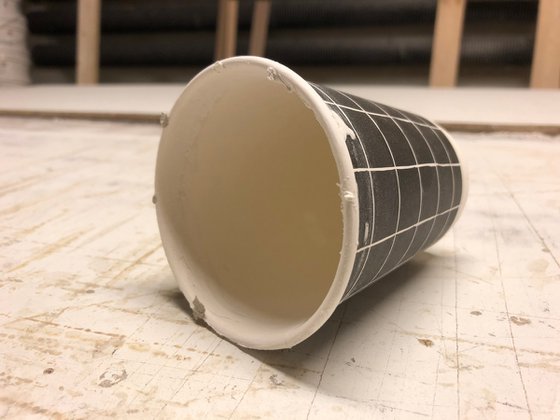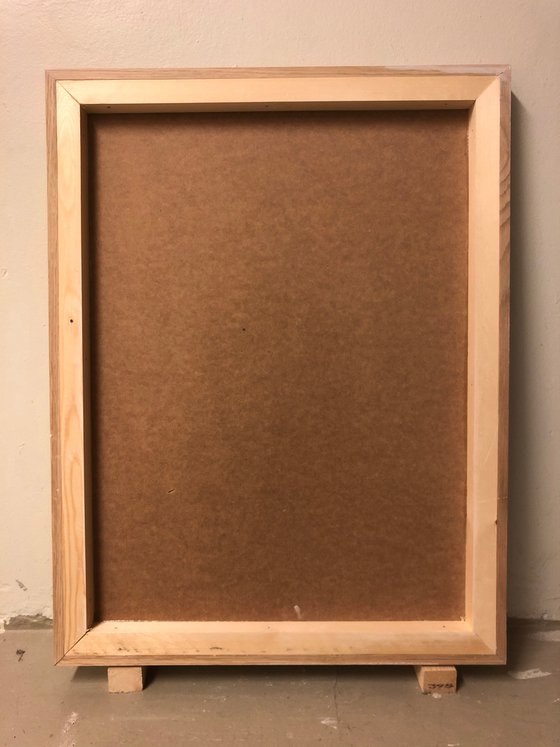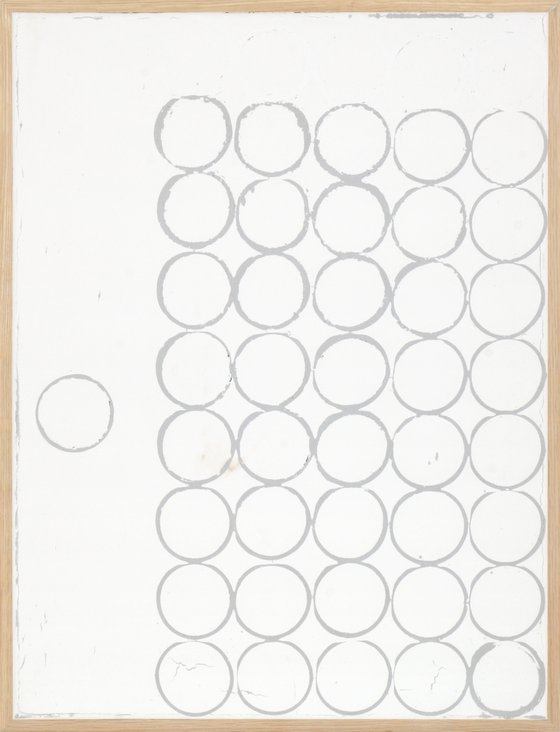- By medium
- By subject
- By budget
- Sales
- Gift cards
- Discover all art
- Artists
- Editors’ picks
- Ideas
Original artwork description:
64x84 cm | Filler, oak frame
The term " 40 Acres And A Mule" has become a symbol of the (non-fulfilled) demand for reparation - compensation for harm and lost income caused by generations of slavery. Effects that we see concrete and material consequences of still today. It is derived from Special Field Order No. 15 issued by General Sherman, signed by President Lincoln during the American Civil War, which gave freed slaves the right to precisely 40 acres of land. The mule came later. Sherman had got the idea after a meeting with representatives of the black communities where they asked them the, for this time radical, question of what they wanted for themselves, after the abolition of slavery. Unfortunately, Lincoln's successor Andrew Johnson revoked the order and all land confiscated were returned to the former plantation and slave owners. One can hardly imagine how different the situation for black people in the United States would have been today if the initiative had been fully implemented.
We cannot overstate the importance of material retaliation when injustice is done to groups of people. Although words and recognition are important, they are often not enough. We can usually resolve inequities between individuals on a linguistic level because we pronounce these words through a physical meeting between the parties. This is crucial. Language only becomes real when it is used in practice, when it is converted into physical material reality. Groups of people cannot meet as easily as subjects in the same way that individuals can. Therefore, language acts between groupings, as an official excuse, should preferably be supported by something concrete material to be valid, i.e. to give real effect in the form of reconciliation. It needs to have a cost. Otherwise, the statement will linger as an idea or a thought. It does not become properly realised, and risks are it has few direct consequences, in the same way, that an intention has no meaning if it is not followed by action.
Paper Cups is a series of paintings with imprints from regular paper cups. The kind you get from fast food places, and the kind that often is used by people begging in the streets. The series takes its starting point in the matter of economic resources and begging as a subversive act in a system of capitalism and neoliberal policies. It also about the priority of material conditions in a broader sense, as in historical materialism but also as in gaining agency for demands as a group. For a movement, a protest or an insurrection to become a subject, an agent with the power to act, it needs to ground its ideas in practical solutions, in a psychoanalytical sense to move from the Imaginary to the Symbolic. This entails touching base with the void of the material Real, where pureness of the intent - the initial message, always will get somewhat polluted and distorted.
Materials used:
Filler (coarse and fine) in oak frame
Tags:
#abstract #painting #minimalism #oak frame #filler#302 Paper Cups - 40 Acres And A Mule (2020)
Painting
by Johan Söderström
1 Artist Reviews
£1,031.8
- Painting on Panel / Board / MDF
- One of a kind artwork
- Size: 64 x 84 x 5cm (framed)
- Framed and ready to hang
- Signed on the back
- Style: Geometric
- Subject: Abstract and non-figurative
Original artwork description
64x84 cm | Filler, oak frame
The term " 40 Acres And A Mule" has become a symbol of the (non-fulfilled) demand for reparation - compensation for harm and lost income caused by generations of slavery. Effects that we see concrete and material consequences of still today. It is derived from Special Field Order No. 15 issued by General Sherman, signed by President Lincoln during the American Civil War, which gave freed slaves the right to precisely 40 acres of land. The mule came later. Sherman had got the idea after a meeting with representatives of the black communities where they asked them the, for this time radical, question of what they wanted for themselves, after the abolition of slavery. Unfortunately, Lincoln's successor Andrew Johnson revoked the order and all land confiscated were returned to the former plantation and slave owners. One can hardly imagine how different the situation for black people in the United States would have been today if the initiative had been fully implemented.
We cannot overstate the importance of material retaliation when injustice is done to groups of people. Although words and recognition are important, they are often not enough. We can usually resolve inequities between individuals on a linguistic level because we pronounce these words through a physical meeting between the parties. This is crucial. Language only becomes real when it is used in practice, when it is converted into physical material reality. Groups of people cannot meet as easily as subjects in the same way that individuals can. Therefore, language acts between groupings, as an official excuse, should preferably be supported by something concrete material to be valid, i.e. to give real effect in the form of reconciliation. It needs to have a cost. Otherwise, the statement will linger as an idea or a thought. It does not become properly realised, and risks are it has few direct consequences, in the same way, that an intention has no meaning if it is not followed by action.
Paper Cups is a series of paintings with imprints from regular paper cups. The kind you get from fast food places, and the kind that often is used by people begging in the streets. The series takes its starting point in the matter of economic resources and begging as a subversive act in a system of capitalism and neoliberal policies. It also about the priority of material conditions in a broader sense, as in historical materialism but also as in gaining agency for demands as a group. For a movement, a protest or an insurrection to become a subject, an agent with the power to act, it needs to ground its ideas in practical solutions, in a psychoanalytical sense to move from the Imaginary to the Symbolic. This entails touching base with the void of the material Real, where pureness of the intent - the initial message, always will get somewhat polluted and distorted.
Materials used:
Filler (coarse and fine) in oak frame
Tags:
#abstract #painting #minimalism #oak frame #fillerReturns and refunds
We want you to love your art! If you are not completely satisfied with your purchase you can return it free within 14 days, no questions asked. Learn more
Artist Reviews (1)
This artwork is sold by Johan Söderström from Norway
